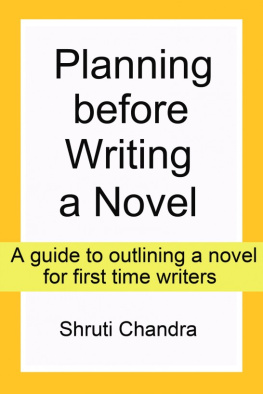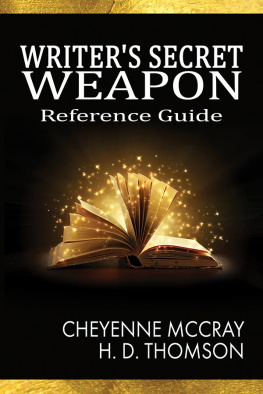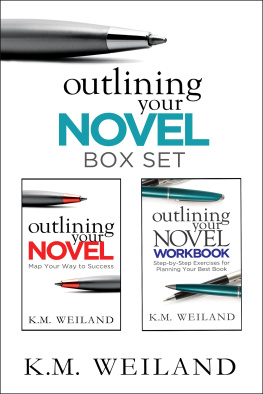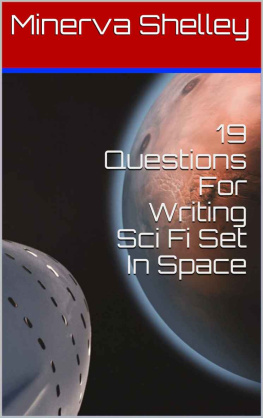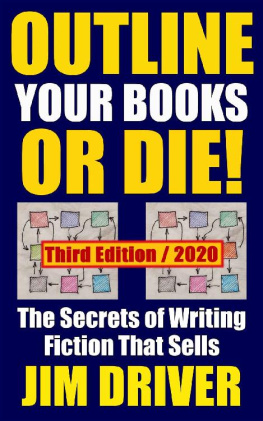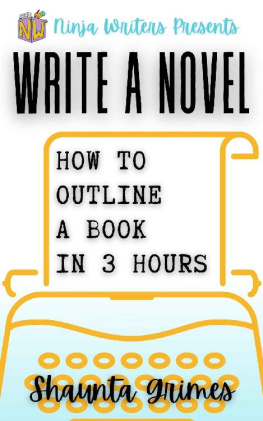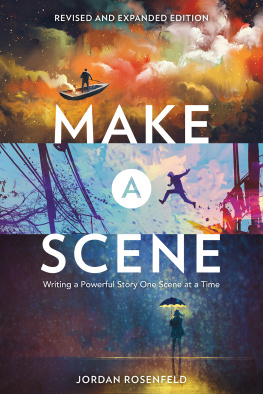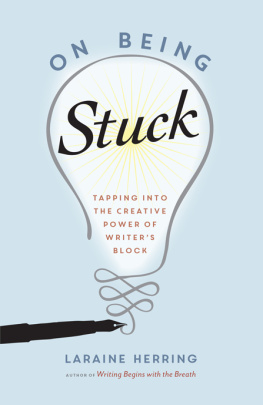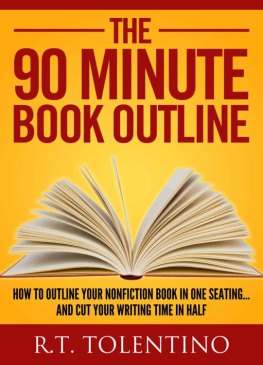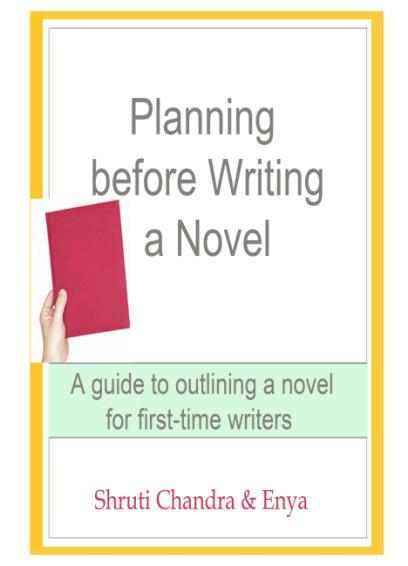
Planning before Writing a Novel
By Shruti Chandra
Published by Shruti Chandra at Smashwords
Copyright 2012 Shruti Chandra
Table of Contents:
Get it down. Take chances. It may be bad, butit's the only way you can do anything really good.
- William Faulkner
Introduction:
Writers need to come down from their pedestaland spell out the truth. I write for fame. I write forsatisfaction. I write for praise. There are many reasons forwriting a novel and all of them are worthy. Whatever is your goal,be proud of it. Write a book through which you can achieve it. Ofcourse, writing in itself is a pleasure which is highlyaddictive.
Another myth about writers is that they sitat their desk with a coffee mug (or drink), uncombed hair and all,and wait for inspiration. The Muse arrives and they begin toscribble, one page after another without thought, much like atypist being dictated. Anybody can put out twenty or thirty pagesusing this method, but they wont be able to write a book, simplybecause books are not written that way. People who use thisapproach get stuck at some point during the creation of their bookand abandon their work.
Novel writing requires planning and thoughtbefore the actual writing begins. It does not sound exciting, butit can save you disappointments later. Your twenty page story caneasily go on till the hundredth or two-hundredth page if you planyour book. Whatever efforts you exert in planning your book willsave you effort in re-writing and editing after finishing writingit. For first time novelists, outlining their novel is highlyrecommended. It will help them in:
Cutting down the writing-time of their bookand making their first draft read better.
Lessening the time they would spend in re-writes and edits afterfinishing writing their book.
Getting freedom from writers block. You will be in control.
The ten questions I have prepared for writerswill help them in inventing and getting to know the characters,plot, setting, point of view, conflict, prose and theme of theirbook real quick. You may write the answers to the questions in aseparate sheet so that when you are done, you will have the entireplan of your novel in front of you.
You have been thinking of writing a novel.Forget fancy terms and author lingo. To write a novel, you need astory. You have the burning desire to write a story; you only needto know how. Answer these ten questions and you will have theoutline of your story with talking characters, setting, plot andtheme. It is no magic. These ten questions will create the skeletonof your book. It will help you to fill spaces where most first-timewriters get stuck. People call it writers block, but it is nothingbut lack of planning.
Write down your answers on a separate page sothat after you are done, you will have ten milestones for yournovel.
Question 1: What do you want to writeabout?
Pick one
1. Romance
2. Fantasy
3. Action
4. Science Fiction
5. Adventure
6. Satire
7. Crime
8. Literature
9. Children's Fiction
10. Young Adult Fiction
11. Horror
12. Mystery
13. Historical Fiction
14. Chic Lit
15. Thriller
16. Women's Fiction
17. Comedy
18. Graphic Novel
19. Erotica
20. Fan Fiction
21. Gothic
22. Tragedy
23. Stream of consciousness
24. War
25. Realistic Fiction
It's better to write about things you feelthan about things you know about.
- L. P. Hartley
The genre you choose is explained below:
1. Romance
Your novel needs to focus on the romanticrelationship between two people, usually of the opposite sex. Itmay have an optimistic ending where love finds fulfillment. Yourmain characters will be the hero and the heroine who will fall inlove and struggle to make their relationship work. Conflict orfriction can be due to internal (personality traits) or external(society, family, environment) factors. Romance can range fromsweet to extremely hot.
End Goal & Conflict in Romance:
Your novel can end in fulfillment of love orit may end in separation. The conflict may be friction between thehero and the heroine due to their personalities, society, othercharacters, compulsions etc. The causes may be avoidable orunavoidable.
2. Fantasy
Your novel needs to have characters andsettings that are not of this world. Magic, witches, talkinganimals, supernatural powers, unthinkable adventures and imaginaryworlds are used in this genre. Your hero/ine will be up againstevil forces in a mythical land.
End Goal & Conflict in Fantasy:
The end of your novel may have theprotagonist save the good characters from the evil, and restore thepeace and happiness of a mythical land. The conflict can be betweenthe good and the evil.
3. Action
Your action novels focus will be on excitinghappenings than character development or story-telling. Car chases,fist fights, extreme sports action, suspense, gun fighting etc.will make up the bulk of your novel. Your hero/ine can be theprotagonist who initiates and faces the action in your novel for apurpose such as saving his child, girlfriend, wife, friend, or toavenge himself/herself of a wrong done to him/her.
End Goal & Conflict in Action:
The end goal of your novel is to get yourhero to succeed in his mission. The conflict can be from people andcircumstances that restrict him from fulfilling his mission.
4. ScienceFiction
Your sci-fi novel will deal with imaginarylands and characters that have some basis in science. Your maincharacters can be either identical or similar to the human race.Some characters can be entirely unfamiliar to us with paranormal,supernatural and inhuman traits. The setting of your novel willhave another planet, star or galaxy.
If you are interested in science and areimaginative, you might want to explore the ideas of aliencivilizations in your sci-fi novel. It differs from fantasy becausethe rationale used in a sci-fi novel is based on scientificresearch, facts and laws of nature.
End Goal & Conflict in Sci-fi:
The goal of your novel is to resolve all theproblems of the alien planet that you have presented as the settingand that of the major characters. Conflict in a sci-fi novel arisesfrom a hostile civilization in another planet, the environment inthe setting and evil characters in the novel.
5. Adventure
Your adventure novel will have a hero who mayundertake perilous journeys to far-away lands. To createcompetition, you can have the hero and the villain undertake thesame journey to achieve the same prize. The aim of the journey canbe a hidden treasure, a lost artifact that has great significance,objects with supernatural power or protection of a person.
End Goal & Conflict in Adventure:
The goal of your novel will be for thehero/ine to complete the adventure and overcome all obstacles toachieve the goal. Conflict can arise from hostile people, animals(if it is set in the woods), environment (floods, cyclones, fire)and fellow-travelers (if any).
6. Satire
If you want to write a satirical novel, youmay include in it irony, humor, exaggeration, double entendre,parody and/or ridicule to expose and criticize people, society,politics and events. The objective of a satire is to expose andattack the target by making fun of it.
End Goal & Conflict in Satire:
The aim of satire is to expose a person or aclass through humorous verbal attacks.
7. Crime
Your crime fiction novel will involve crime,its detection, criminals, cops, and, of course, your maincharacters who are affected by the crime. You have a lot ofsub-genres within crime such as detective fiction, suspense,courtroom drama etc. You can choose any sub-genre depending onwhich part of the crime you are most interested in.
Next page
